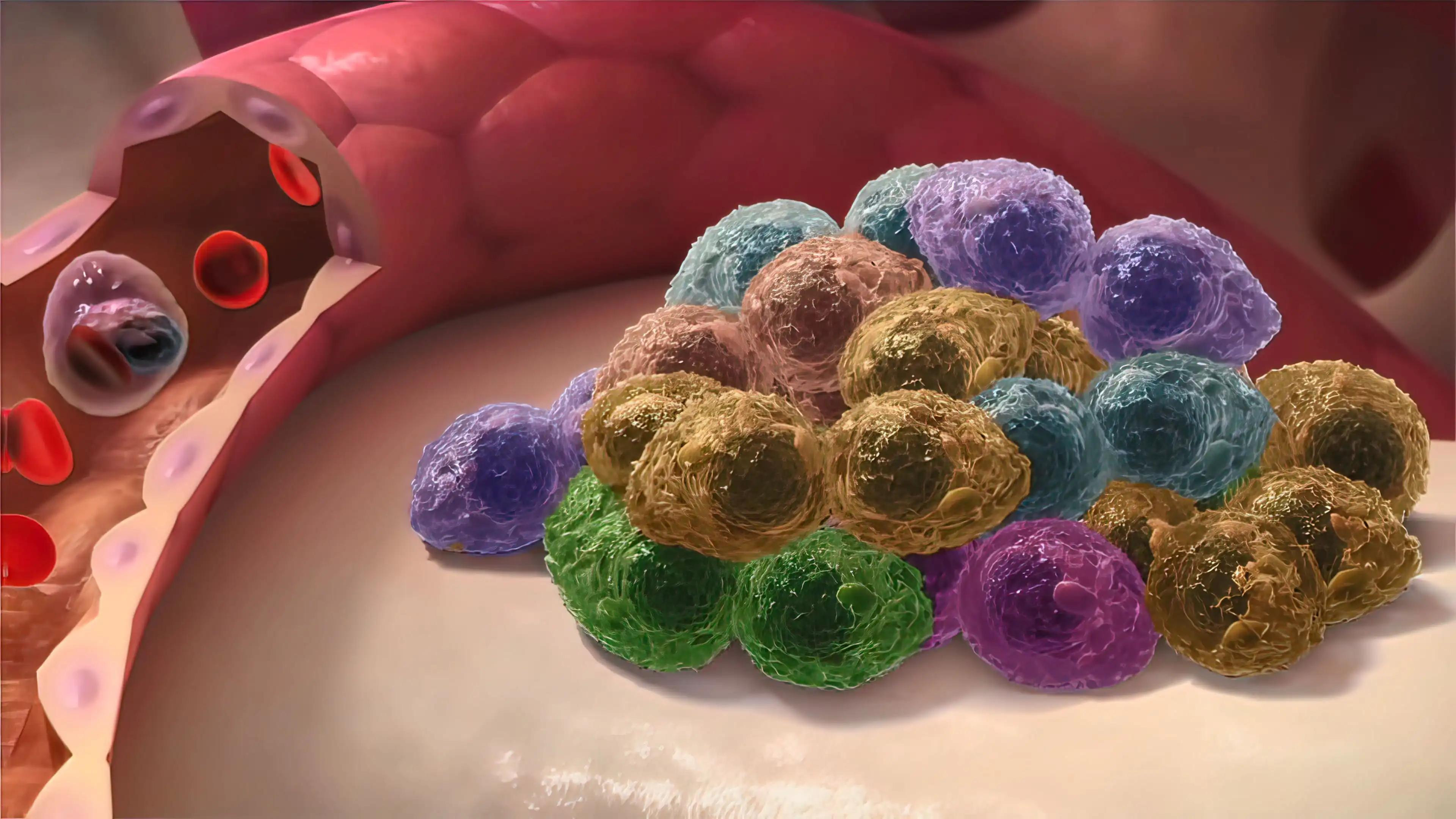KEY TAKEAWAYS
- The phase 3 ILyAD study aimed to investigate the effects of oral cholecalciferol supplementation vs. placebo in indolent NHL patients undergoing rituximab montherapy.
- The primary endpoint was the EFS.
- Researchers noticed no statistically significant changes in the EFS of indolent NHL patients treated with rituximab treated with oral cholecalciferol supplement.
Low vitamin D levels at the diagnosis in indolent B-cell lymphomas correlate with significantly poorer overall survival (OS), surpassing conventional prognostic factors. This connection is amplified by the hindrance of rituximab efficacy and impaired macrophage function in vitamin D insufficiency. The phase III ILyAD trial led by Jonathan Friedberg explores oral cholecalciferol supplementation’s impact on indolent lymphoma patients undergoing rituximab monotherapy in vivo, aiming to elucidate the clinical benefits of improving vitamin D levels.
This prospective, double-blind, randomized controlled trial enrolled patients with biopsy-confirmed low tumor burden small lymphocytic lymphoma, marginal zone lymphoma, or follicular lymphoma (grades 1-3A) based on GELF criteria. Researchers implemented exclusion criteria to minimize risks associated with cholecalciferol therapy and included patients with osteoporosis requiring treatment, symptomatic hyperparathyroidism, hypercalcemia (> normal), history of calcium-related nephrolithiasis, or creatinine > 2X normal. Additionally, patients were discouraged from using supplemental vitamin D, but doses up to 1000 IU daily were allowed.
Patients received rituximab or an approved biosimilar at a dosage of 375 mg/m2 weekly for four weeks or a subcutaneous equivalent dosing per the investigator’s discretion. Then, they were randomized in a double-blind, 2:1 fashion to receive either 2000 IU of vitamin D3 or a placebo daily. The randomization process was stratified by histology (follicular vs all other) and FLIPI score (high vs low and intermediate). The 2000 IU vitamin D3 or placebo commenced on day 1 of rituximab therapy.
Restaging PET/CT scans were performed at week 13. Responding patients continued on the study with daily dosing for 36 months or until disease progression. Patients with stable disease or disease progression at week 13 were counted as events. The study aimed to provide 81% power to detect HR = 0.55 at a two-sided α = 0.05 significance level. Blinded serum 25(OH) vitamin D2 and D3 levels were measured by tandem mass spectrometry. Saliva was collected to isolate germline DNA, and SNP analysis was performed using Oragene collection kits, OGR-500 (DNA Genotek Inc).
This analysis involved 206 diverse lymphoma patients (follicular, n=137; MZL, n=33; SLL, n=22; and MALT, n=14). The median age was 62 (range 30-80), with 57% female, 89% White, and 76% overweight or obese. Baseline vitamin D was 33ng/mL. Compliance was confirmed with mean vitamin D levels at week 13 (Vitamin D arm: 41.6 ng/mL; placebo: 31.3 ng/mL). Expected rituximab toxicity occurred, with rare events (hypercalcemia: n=2, placebo; renal calculi: n=4, vitamin D; bone fractures: n=3, vitamin D).
Week 13 responses were 84%, with no difference between arms. Subtype responses varied. Median follow-up was 19.5 months, showing a median EFS of 34.5 months (95% CI: 24 – 42+ months), with no significant difference between arms (P=0.7). Subgroup analyses (histology, FL-IPI score, sex, and baseline vitamin D) revealed no significant differences, including patients with the lowest baseline vitamin D (28 or lower; P=0.27). Polymorphisms showed no EFS association in 94% of patients.
In this phase III trial, vitamin D supplementation showed no significant benefit in indolent lymphoma patients treated with rituximab. The association between low vitamin D levels and outcomes appears more indicative of illness and comorbidity than a modifiable risk factor. These findings have potential implications for ongoing and planned studies investigating vitamin D supplementation in different malignancies. The study is sponsored by Jonathan Friedberg
Source: https://ash.confex.com/ash/2023/webprogram/Paper178088.html
Clinical Trial: https://clinicaltrials.gov/study/NCT03078855
Friedberg J. W, Brady M. T, Myla S, et al. (2023). “Ilyad: A Phase III Double Blind, Randomized Trial Evaluating Vitamin D (Cholecalciferol) in Patients with Low Tumor-Burden Indolent Non-Hodgkin Lymphoma Treated with Rituximab Therapy.” Presented at ASH 2023 (Abstract 606)



